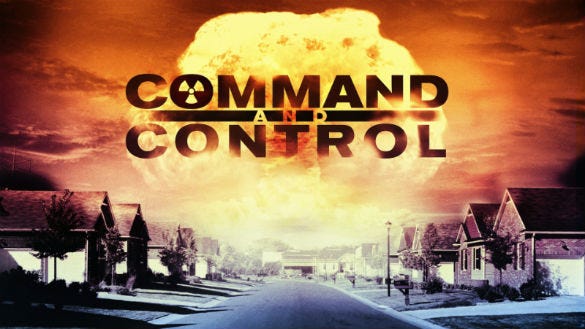Indy Film Fest: Command and Control
For more information and showtimes, click here.
What if you made a workplace error that could potentially kill millions?
"Command and Control" is about one such mistake. It's a harrowing look at the nature of the American nuclear arsenal and how the safeguards in place to protect us are only as safe as the men and women who operate them — men and women no different than your average working stiff.

In September 1980, routine maintenance on a Titan nuclear missile in Damascus, Arkansas, took a turn for the worst when a technician performing maintenance used the wrong tool; he was unaware of an updated manual. He dropped a socket — one simple socket — that caused a leak in the missile's fuel tank. After hours of intense work, toxic gas, an explosion and an incredibly fortunate non-detonating warhead, a catastrophe was avoided.
International relations in the late 20th century were, in part, defined by nuclear weaponry, and there are many well-known incidents that almost led to accidental detonations. The Damascus incident, however, is a particularly excruciating one because it begged the question: How safe can we really keep these kinds of weapons? If a simple mistake could lead to millions of deaths, why do we keep these weapons where we live? Where should we keep them? If you have a bad night, forget your coffee or screw up at work — big deal. But if the person manning one of these stations, just as human as you, can have just as bad a morning ...
Director Robert Kenner ("Food Inc.") and writer Eric Schlosser ("Fast Food Nation") know that to tackle big questions, they need to focus on real, human terms. "Command and Control" finds its greatest strength within the stories of the men who lived the event, and forms its spine on interviews with them. Their experience is harrowing, told through memories that clearly play over and over again in their heads. Six of them were awarded Airmen's Medals of Heroism for their work. But, they note, their lives and careers were defined by this event ... and not always for the better.
There are many ominous warnings to find in "Command and Control." We learn, toward the end of the film, that our nuclear security and failsafes ultimately haven't improved much in the last 30 years. But perhaps the most disturbing fact of all is that the most deadly risk is the only one you can't counter — human error.


